1. Group Travel

Group vacations with friends or extended family are supposed to be fun, but they often involve compromises and quiet frustrations. From clashing schedules to shared bathrooms, it’s rarely the relaxing escape people imagine. Still, people go along with the plan to avoid being labeled difficult or antisocial. Saying “I’d rather travel solo” can sound like a rejection of the group.
Most travelers would admit to at least one group trip that left them secretly counting the days to go home. But backing out risks drama or hurt feelings. So they pack their bags and brace for it. It’s a vacation, but it feels like work.
2. Fancy Coffee Orders
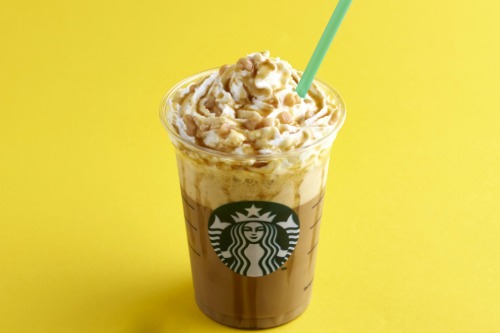
The rise of elaborate coffee drinks—think oat milk macchiatos with two pumps of something—has made simple coffee feel outdated. Many people order complicated drinks just to fit in or avoid seeming out of touch. Even if they’d prefer a basic black coffee, they go along with the trend. It’s easier than getting side-eyed at a café.
Coffee culture has become a lifestyle, not just a beverage. Customization is the norm, and plain preferences can feel boring. So people follow the script and pretend it’s worth the $6. It’s morning caffeine wrapped in social pressure.
3. Overly Sweet Desserts

Americans are known for their sweet tooth, but even many of them quietly think some desserts go too far. From sugar-laden cupcakes with two inches of frosting to cereals that taste more like candy, it can be overwhelming. People will smile and eat it anyway, especially if it’s homemade or served at a party. Declining can feel like an insult to the host.
The truth is, taste preferences vary widely, and not everyone enjoys super-sweet treats. But because sugar is tied to celebration and comfort, saying you don’t like it might be seen as weird or snobby. So folks nibble politely, even if they’d rather have something savory. It’s all part of the social performance.
4. Networking Events

Networking is often framed as essential for career growth, but it can feel unnatural and transactional. Many people dread walking into a room full of strangers just to exchange business cards and buzzwords. Still, they go to avoid falling behind professionally or seeming unambitious. It’s the modern version of “you have to play the game.”
Even extroverts can find these events draining or disingenuous. But there’s a collective pressure to smile, shake hands, and talk yourself up. Most would rather skip the schmoozing, but they fake it because everyone else is doing the same. It’s the career equivalent of pretending to enjoy a chore.
5. Brunch
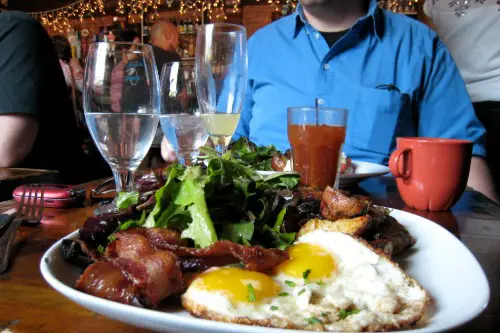
Brunch has become a weekend ritual in many cities, especially among younger adults, but not everyone is genuinely into it. The long waits, overpriced mimosas, and Instagram-worthy avocado toast don’t appeal to everyone. Still, people go because it’s become a social staple—declining feels like missing out. Saying you’d rather sleep in or eat at home can get you labeled as boring.
Many would admit they’re not even that hungry by 11 a.m., or that they hate the wait times. But brunch isn’t just a meal—it’s an event. It’s about being seen and being social. So they show up, post a pic, and power through the meal.
6. Watching Sports
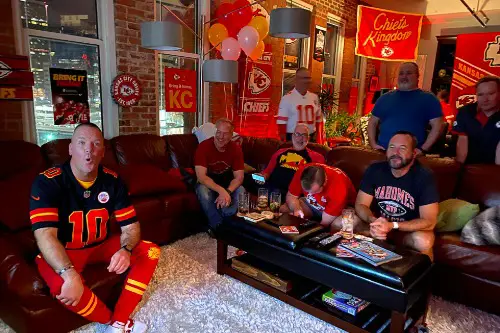
In many social circles, not caring about sports can make you feel like an outsider. Whether it’s the Super Bowl or March Madness, people pretend to care just to join the conversation. Even if they don’t understand the rules or know the teams, they’ll cheer anyway. It’s easier than explaining why they don’t watch.
The social pressure is especially strong in work settings or family gatherings. No one wants to be the only one asking, “Who’s playing again?” So they memorize a few headlines and fake enthusiasm. It’s cultural camouflage.
7. Hosting Big Holiday Gatherings

Holiday hosting is seen as a badge of honor in many American families, but a lot of people dread it. Between the cleaning, cooking, and juggling personalities, it’s more stress than celebration. Still, they offer their homes to avoid disappointing family or appearing ungracious. It’s often about keeping up appearances.
Many would rather have a quiet, simple holiday, but saying that feels taboo. The expectation is that holidays should be big, loud, and picture-perfect. So they put on a smile, roast the turkey, and collapse afterward. It’s hospitality with a side of exhaustion.
8. Going to the Gym

Fitness is a huge part of American culture, but many people go to the gym out of guilt rather than passion. The pressure to stay fit and look a certain way is intense, especially with social media showing constant #fitspo. Even if they hate the treadmill, they show up to avoid feeling lazy or out of step. It’s more about the identity than the activity.
Plenty of people would rather walk outside, dance, or do literally anything else. But gyms are marketed as the “correct” way to be healthy. So they buy memberships they rarely use and pretend to enjoy the grind. All to stay in the fitness conversation.
9. Reality TV

Despite massive ratings, many viewers privately think reality TV is mind-numbing. Shows like The Bachelor or Love Is Blind are often watched ironically—or just to keep up with office chat. People pretend to like it to stay culturally current or avoid seeming out of the loop. It’s easier to nod along than admit you don’t get the hype.
The genre is built around manufactured drama and formulaic plots. But social media rewards being part of the shared experience. So people watch with half-interest and full commentary. It’s entertainment by peer pressure.
10. Camping

Camping is marketed as wholesome and adventurous, but plenty of Americans quietly loathe it. Sleeping on the ground, battling bugs, and using a communal bathroom isn’t everyone’s idea of fun. Still, people go because saying no sounds spoiled or ungrateful. It’s seen as un-American to dislike the great outdoors.
The cultural ideal of “roughing it” is strong in the U.S., linked to independence and self-reliance. But a lot of folks would rather stay in a hotel and call it a day. They just don’t say that out loud. Instead, they pack up the gear and pretend it’s magical.
11. Wine Tasting

Wine tasting often feels more like a performance than a pastime. Many people nod seriously while pretending to detect “hints of cherry and oak” when they’re really just tasting…wine. Still, it’s seen as cultured and sophisticated, so they play along. Admitting you can’t tell red from white beyond color can feel embarrassing.
There’s social currency in pretending to know your merlot from your cabernet. Even if it’s not your thing, you swirl, sniff, and sip like everyone else. It’s less about taste and more about image. So people fake the enthusiasm and hope no one asks too many questions.
12. Office Happy Hours
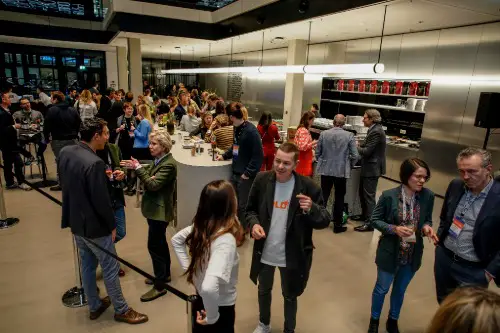
Happy hours after work are often seen as team-building or morale-boosting, but not everyone enjoys them. Many people would rather go home and unwind than make small talk over overpriced drinks with coworkers. Still, they show up to avoid seeming antisocial or disengaged from the team. It’s less about the drinks and more about the optics.
Plenty of introverts or people with family responsibilities feel guilty for skipping these events. But the pressure to fit in with workplace culture is strong. Saying no can feel like career sabotage, even if the event is optional. So they nod along, sip slowly, and wait until it’s polite to leave.
13. DIY Projects

DIY culture is everywhere, from home makeovers to Pinterest crafts, but it’s not everyone’s strength. A lot of people start projects with enthusiasm and end them with regret. Still, they try to keep up because doing things yourself is seen as thrifty and capable. Admitting you’d rather hire someone feels lazy or uncreative.
YouTube tutorials make it all look easy, but reality is messier. Whether it’s a crooked shelf or a botched paint job, many people just smile through the stress. They post the “after” photo and hide the chaos. It’s home improvement as performance art.
14. Small Talk with Strangers
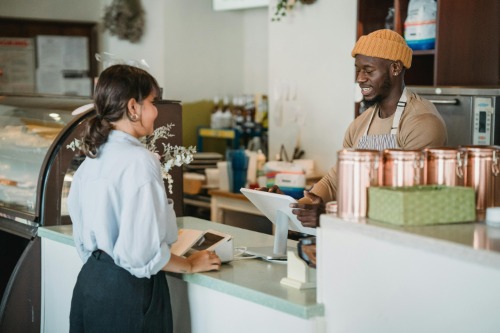
Most Americans engage in small talk at the grocery store, in elevators, or while waiting in line, but deep down, many find it awkward and exhausting. It’s a cultural expectation to seem friendly and approachable, especially in public spaces. But not everyone wants to chat about the weather or weekend plans with someone they’ll never see again. They just do it to avoid appearing rude or antisocial.
Despite the ubiquity of small talk, surveys show that many people would prefer more meaningful conversations—or none at all. Still, there’s an unspoken rule that silence equals discomfort. So people fill the space with polite chatter, even when it feels forced. It’s the social equivalent of smiling through a toothache.
15. Festivals

From music festivals to food fests, these events are often hot, crowded, and overwhelming. Still, people flock to them for the photos, the vibes, and the FOMO protection. Admitting you’d rather stay home sounds curmudgeonly or antisocial. So they tough it out in muddy fields and pretend they’re having the time of their life.
The truth is, not everyone enjoys being packed into a sweaty crowd for hours. But festivals have become cultural currency, especially for younger adults. People chase the highlight reel instead of the actual experience. It’s memory-making with a dash of misery.
16. Spicy Food Challenges
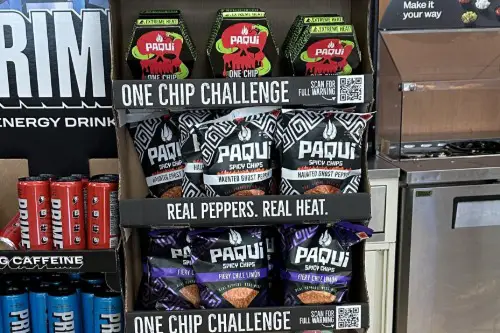
Spicy food challenges are a popular dare-style activity, but most people aren’t genuinely into the extreme heat. They participate to seem tough or adventurous, not because they enjoy having their mouth on fire. Still, they go through with it, sweating and crying for the camera. It’s about bravado, not flavor.
The physical reactions to extremely spicy food are often miserable—runny nose, burning lips, upset stomach. But social media and group dynamics egg people on. Saying no might kill the mood or make you look boring. So they take the bite and fake the smile.
17. Festivals

From music festivals to food fests, these events are often hot, crowded, and overwhelming. Still, people flock to them for the photos, the vibes, and the FOMO protection. Admitting you’d rather stay home sounds curmudgeonly or antisocial. So they tough it out in muddy fields and pretend they’re having the time of their life.
The truth is, not everyone enjoys being packed into a sweaty crowd for hours. But festivals have become cultural currency, especially for younger adults. People chase the highlight reel instead of the actual experience. It’s memory-making with a dash of misery.
18. Spicy Food Challenges

Spicy food challenges are a popular dare-style activity, but most people aren’t genuinely into the extreme heat. They participate to seem tough or adventurous, not because they enjoy having their mouth on fire. Still, they go through with it, sweating and crying for the camera. It’s about bravado, not flavor.
The physical reactions to extremely spicy food are often miserable—runny nose, burning lips, upset stomach. But social media and group dynamics egg people on. Saying no might kill the mood or make you look boring. So they take the bite and fake the smile.
19. Craft Beer Tastings

Craft beer tastings have become a social staple, but not everyone loves the bitter, hoppy flavors. Many people pretend to enjoy it to seem sophisticated or in-the-know. They nod along as others describe “notes of citrus” or “earthy undertones,” even if it all tastes the same to them.
The pressure to fit into beer culture is real, especially in certain friend groups or cities. Declining a pint or admitting you prefer light beer can feel like a social faux pas. So they sip, nod, and hope no one asks for their detailed opinion. It’s less about taste and more about fitting in.
20. Karaoke Nights
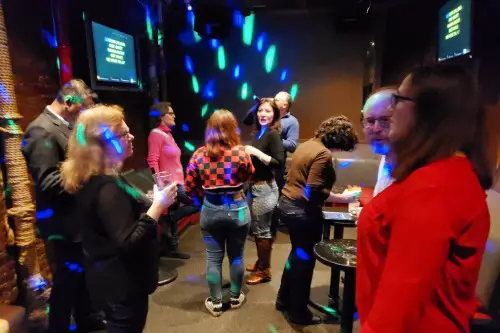
Karaoke is often framed as a fun group activity, but many people dread it. The thought of singing in front of others can be anxiety-inducing, even for extroverts. Still, they grab the mic and belt out a tune to avoid being labeled a buzzkill. Saying no can feel like you’re ruining the fun.
Most participants are more focused on not embarrassing themselves than actually enjoying the moment. But the group dynamic means everyone has to take a turn. They fake enthusiasm, sing half-heartedly, and hope the spotlight moves on quickly. It’s communal fun with a side of discomfort.
21. Yoga Classes
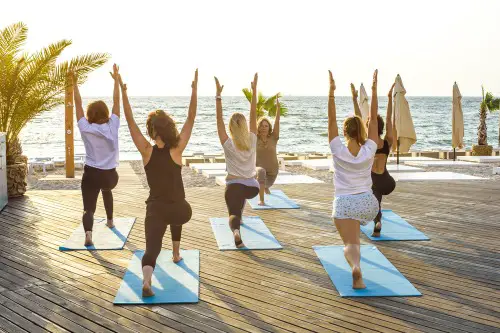
Yoga is marketed as a relaxing way to stay fit, but many people find it awkward or uncomfortable. Holding poses in a room full of strangers isn’t everyone’s idea of a good time. Still, they go because it’s seen as healthy and trendy. Saying you’d rather just go for a walk can sound lazy.
The pressure to “namaste” along with the group is strong, even if you’re secretly counting the minutes until it’s over. Many people struggle with the flexibility or mindfulness aspects but pretend to enjoy it anyway. It’s fitness wrapped in social expectation.
22. Book Clubs

Book clubs are often seen as intellectual and social, but not everyone enjoys the assigned readings. Many people skim the book or read summaries just to keep up with the discussion. Still, they attend to avoid seeming uninterested in literature or disconnected from the group.
The social pressure to participate is strong, especially when everyone else seems genuinely engaged. Admitting you didn’t finish the book—or didn’t like it—can feel awkward. So they nod along, offer vague insights, and hope no one asks too many questions. It’s less about the books and more about the camaraderie.
23. Virtual Meetings
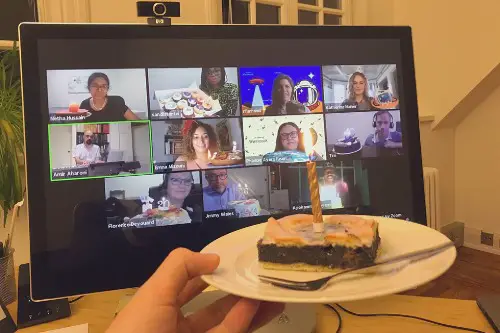
Virtual meetings became the norm during the pandemic, but many people secretly find them draining. Staring at a screen for hours while pretending to pay attention isn’t everyone’s idea of productivity. Still, they log on to avoid seeming disengaged or unprofessional.
The pressure to look engaged and camera-ready is real, even if you’re multitasking or zoning out. Saying you’d rather just email can sound lazy or uncooperative. So they mute their mic, turn on their camera, and fake the enthusiasm. It’s the modern version of “playing the game.”
24. Holiday Decorating

Holiday decorating is often seen as festive and fun, but many people find it stressful and time-consuming. Untangling lights, assembling trees, and hanging ornaments can feel like a chore. Still, they do it to avoid seeming like a Grinch or disappointing their family.
The expectation to have a picture-perfect home during the holidays is strong. Saying you’d rather keep it simple can feel like a letdown. So they spend hours decorating, take the obligatory photos, and secretly dread taking it all down. It’s holiday cheer with a side of exhaustion.
25. Organic Food Trends

Organic food is marketed as healthier and more ethical, but not everyone is convinced. Many people buy it because it’s trendy, not because they notice a difference in taste or quality. Still, they go along with it to avoid seeming uninformed or indifferent to health trends.
The pressure to eat organic is especially strong in certain social circles or neighborhoods. Admitting you’re fine with non-organic options can feel like a faux pas. So they stock their pantry with overpriced items and pretend it’s worth the cost. It’s dietary conformity in disguise.
26. High-End Fashion Brands
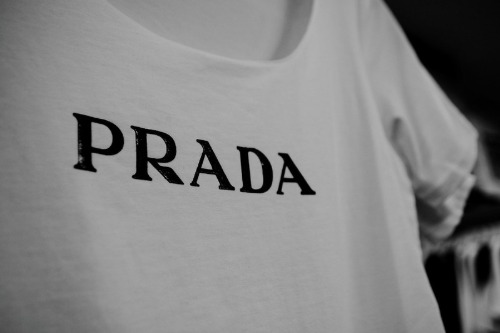
High-end fashion brands are often seen as aspirational, but not everyone genuinely loves the designs or price tags. Many people wear them to fit in or appear successful, not because they’re passionate about the brand. Still, they drop the cash to avoid seeming out of touch or unstylish.
The social currency of wearing designer labels is real, especially in certain circles or industries. Saying you’re fine with less expensive options can feel like admitting defeat. So they invest in the logo, wear it proudly, and hope no one asks how much it cost. It’s fashion as status symbol.


